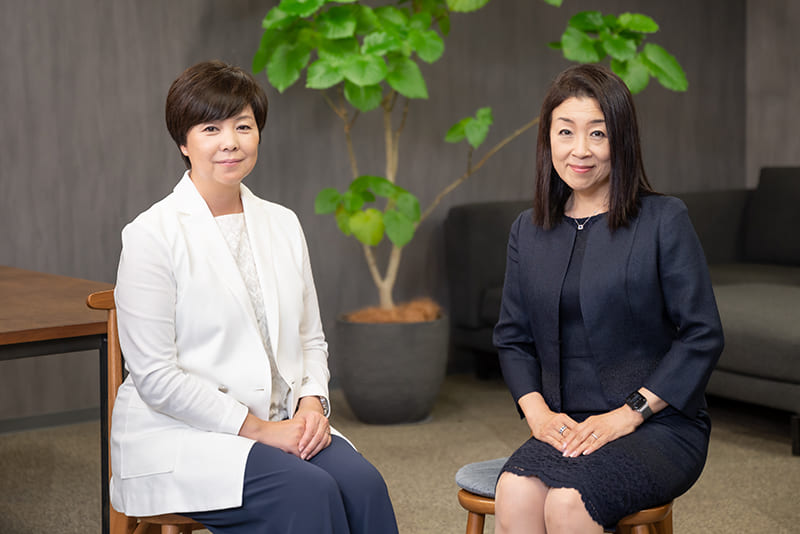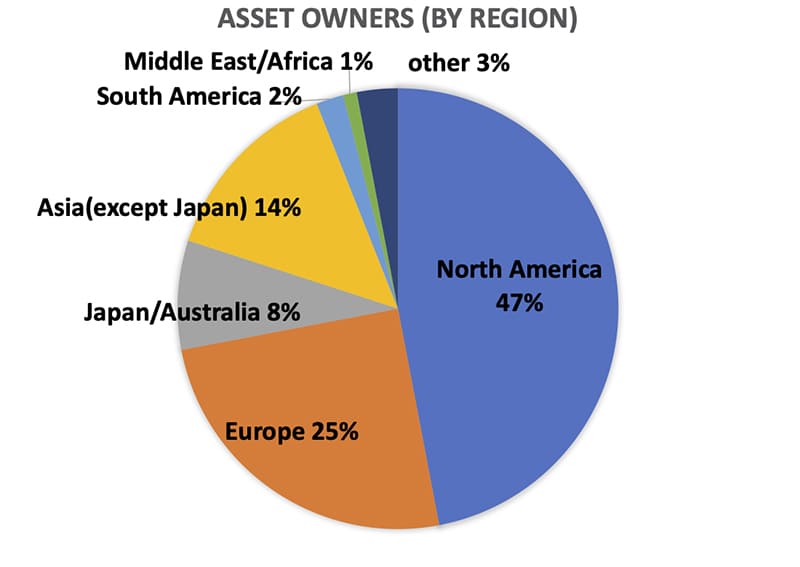
Behavior, lifestyles changing
Honda, who currently studies ESG investing as an adjunct professor at Columbia University, says she feels, through conversations with students, that “Young people are driving the world in a significant way.” In Europe, for example, it is not unusual for people, when buying a life insurance policy, to compare insurance companies’ ESG investing policies and choose a product from a company that reflects ESG factors in its investment decisions. For such financial products that pay out after many years, the company’s ability to pay could be at risk unless it takes ESG factors into consideration in its investment decisions.
Consumer behavior is also changing. In the U.S., products confirmed to be free of child labor and forced labor, for example, are finding “a growing segment who buy them even if prices are 5% higher or so,” Honda said. The choices of consumers who attach importance to shared values are driving changes in corporate and investor behaviors.
The COVID-19 pandemic has caused people’s lifestyles to change, and the Russian invasion of Ukraine has caused the global economy to face energy and food security problems. Honda predicts ESG investing, which has steadily expanded, will grow further. With respect to energy, for example, gas and oil prices have risen, leaving power companies no choice but to pass on the higher costs in their electricity and gas bills. This may remove some consumers’ impression that renewable energy sources such as solar and wind are more expensive, which in turn may give momentum to those sources’ further introduction.
A key concern, however, is a potential expansion of the defense industry.
“Increases in defense spending are a worldwide trend,” Honda said. “The defense industry has the potential to continue to grow.”

Honda says Europeans and Americans have differing views on ESG data disclosure.
According to Honda, the mainstream view of ESG investing is to choose investment targets by integrating the effects of nonfinancial factors into the value of the company alone. In the U.S., companies are asked to disclose ESG factors affects corporate value. — this is known as “single materiality.”
On the other hand, in EU countries, “double materiality,” which also takes positive impacts on society into consideration, in what Honda calls “impact investing,” is advocated.
When Honda was serving as MIGA CEO and executive vice president, there was a port development project in Senegal. The project improved port operations, and as a result the export of fresh fruits became possible. This in turn resulted in increased revenues for farmers and led to improvements in education, which were “unexpected impacts,” according to Honda. However, there are only so many projects that can both help solve social issues and generate returns through investment and corporate activities. According to a survey, the total amount of ESG investing of the world exceeded $31 trillion in 2020, but the figure for impact investing reached only about $700 billion.
“The key is to work on single materiality first and pay attention to, for example, how earnings may be impacted if a flood hits,” Honda said. Honda sees potential for technology to help resolve issues such as climate change. “If it becomes possible to manufacture storage batteries more simply and at low cost, for example, it will be a major progress for the world,
I picked this part from this topic
for full topic and more interesting topics please visit this site
